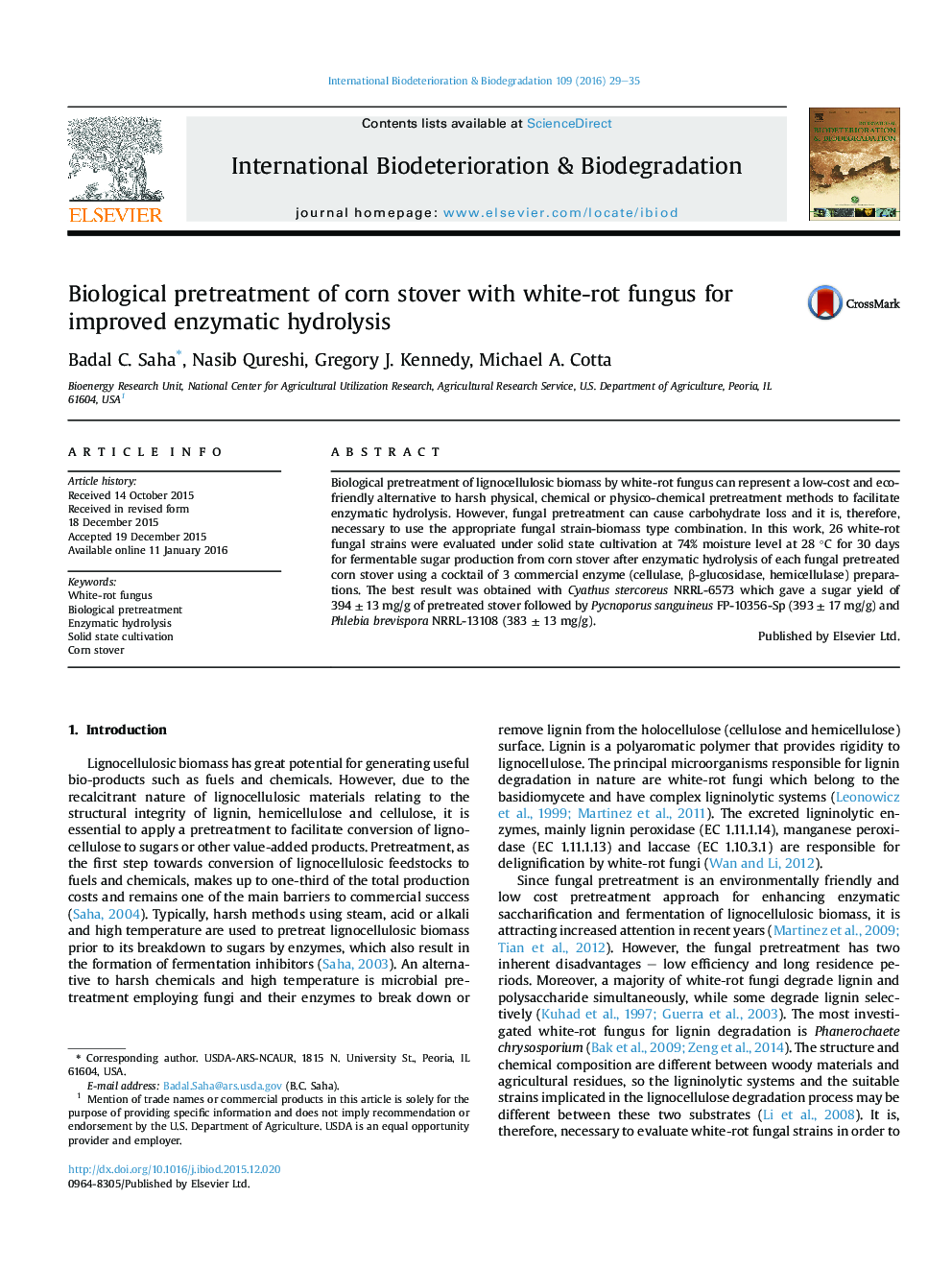| Article ID | Journal | Published Year | Pages | File Type |
|---|---|---|---|---|
| 4364259 | International Biodeterioration & Biodegradation | 2016 | 7 Pages |
•White-rot fungal pretreatment increased the enzymatic hydrolysis of corn stover.•Appropriate fungal strain selection is important for a specific biomass pretreatment.•Fungal pretreatment caused carbohydrate loss in addition to lignin loss.•Delignification ability of white-rot fungal strains varied widely among species.
Biological pretreatment of lignocellulosic biomass by white-rot fungus can represent a low-cost and eco-friendly alternative to harsh physical, chemical or physico-chemical pretreatment methods to facilitate enzymatic hydrolysis. However, fungal pretreatment can cause carbohydrate loss and it is, therefore, necessary to use the appropriate fungal strain-biomass type combination. In this work, 26 white-rot fungal strains were evaluated under solid state cultivation at 74% moisture level at 28 °C for 30 days for fermentable sugar production from corn stover after enzymatic hydrolysis of each fungal pretreated corn stover using a cocktail of 3 commercial enzyme (cellulase, β-glucosidase, hemicellulase) preparations. The best result was obtained with Cyathus stercoreus NRRL-6573 which gave a sugar yield of 394 ± 13 mg/g of pretreated stover followed by Pycnoporus sanguineus FP-10356-Sp (393 ± 17 mg/g) and Phlebia brevispora NRRL-13108 (383 ± 13 mg/g).
